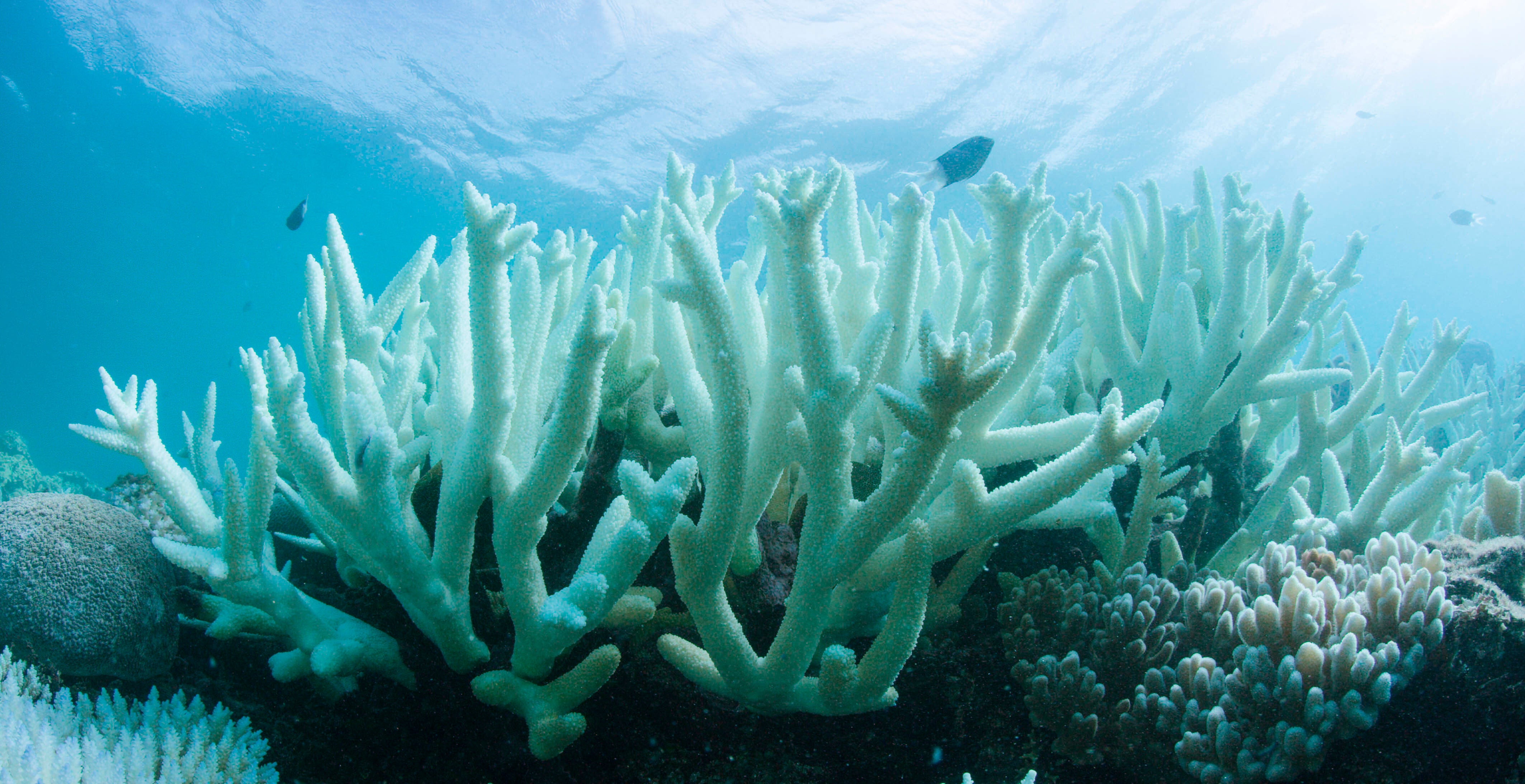Even 1.5C of global warming will be ‘catastrophic’ for coral reefs, study says
Scientists have warned of a bleaker outlook for the world’s corals than previous assessments as a result of climate change.

Your support helps us to tell the story
From reproductive rights to climate change to Big Tech, The Independent is on the ground when the story is developing. Whether it's investigating the financials of Elon Musk's pro-Trump PAC or producing our latest documentary, 'The A Word', which shines a light on the American women fighting for reproductive rights, we know how important it is to parse out the facts from the messaging.
At such a critical moment in US history, we need reporters on the ground. Your donation allows us to keep sending journalists to speak to both sides of the story.
The Independent is trusted by Americans across the entire political spectrum. And unlike many other quality news outlets, we choose not to lock Americans out of our reporting and analysis with paywalls. We believe quality journalism should be available to everyone, paid for by those who can afford it.
Your support makes all the difference.Even limiting global temperature rises to 1.5C will be “catastrophic” for coral reefs, scientists have warned.
Countries have agreed to curb global warming to 2C, and pursue efforts to limit temperature rises to 1.5C to avoid the worst impacts of climate change, including more extreme floods, storms, heatwaves and damage to crops.
But scientists led by the University of Leeds warn that the climate risk is even worse for coral reefs than set out in a UN assessment in 2018 which warned 70-90% would be lost at 1.5C of warming.
That assessment, by the Intergovernmental Panel on Climate Change (IPCC), also found almost all corals would vanish at 2C of warming.
The new research has found that more than 90% of tropical coral reefs would suffer frequent “intolerable” heat stress as a result of ocean warming even under the tougher 1.5C limit.
Locations that can maintain suitable temperatures for corals to survive, while the ocean temperatures in surrounding areas rise, are known as “refugia”, and were identified by the researches as areas projected to suffer severe heat stress less than once in 10 years.
This is around the amount of time for reefs to grow back and be fully functioning.
In recent decades, 84% of tropical reefs have had sufficient time between heatwaves that cause coral death or bleaching to recover and re-establish, with these refugia found in all 12 coral reef regions across the world.
But at 1.5C of warming, that will fall to just 0.2% of coral areas, in Polynesia and the “coral triangle” in the western Pacific Ocean where lower rates of warming and upwelling of colder water reduce the frequency of ocean heatwaves.
No “refugia” areas will exist with 2C of warming, the study based on historical data and climate models shows.
“We confirm that warming of 1.5C relative to pre-industrial levels will be catastrophic for coral reefs,” they wrote in a paper published in the journal PLoS Climate.
Identifying and protecting refugia, reducing other stresses such as fishing and pollution, has been a popular recommendation for managing reefs, the researchers said, but may only be a short term solution.
Alongside creating protected areas, action to help reefs adapt to higher temperatures and help migration of species might be needed to secure coral reef survival.
Lead author Adele Dixon, a PhD researcher in the University of Leeds’ School of Biology, said: “Our finding reinforces the stark reality that there is no safe limit of global warming for coral reefs.”
She said that, following the Cop26 climate summit in Glasgow where countries made some progress towards keeping temperatures to the 1.5C limit, “our finding shows that 1.5C is still a substantial amount of warming for the ecosystems on the frontline of climate change”.
Piers Foster, professor of Climate Physics in the University of Leeds, said: “Our work shows that corals worldwide are even more at risk from climate change than we thought at the time of the IPCC Special Report on 1.5C.
“This reinforces the stark reality that there is no safe limit of global warming, and we need to act urgently to save what we can.”